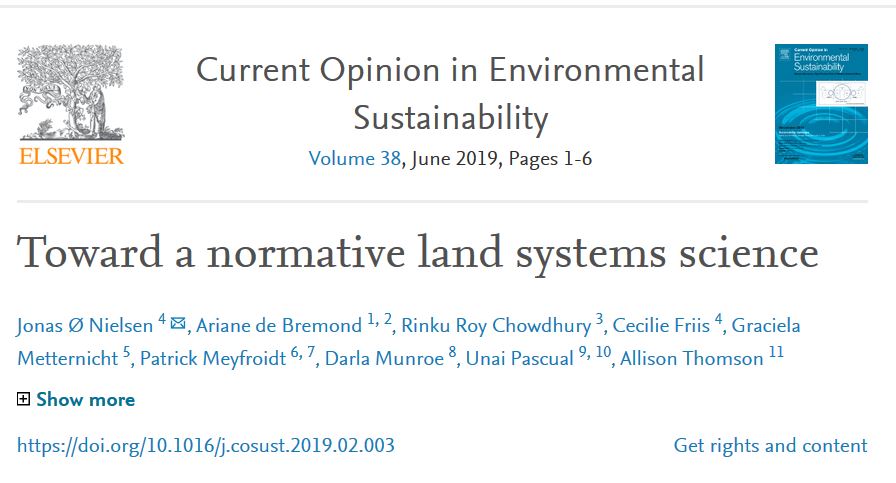April 3, 2019
Published by BC3Research Stefano Balbi Ferdinando Villa at April 3, 2019
Categories
Enhancing the governance of social-ecological systems for more equitable and sustainable development is hindered by inadequate knowledge about how different social groups and communities rely on natural resources. We used openly accessible national survey data to develop a metric of overall dependence on natural resources. These data contain information about households' sources of water, energy, building materials and food.
Do you like it?
April 5, 2019
Published by BC3Research Unai Pascual at April 5, 2019
Categories
Science should provide solutions for societal transformations toward sustainability in the face of global environmental change. Land system science, as a systemic science focused on complex socio-ecological interactions around land use and associated trade-offs and synergies, is well placed to contribute to this agenda.
Do you like it?
August 7, 2019
Published by BC3Research Silvestre Garcia Jorge Curiel Aline Chiabai at August 7, 2019
Categories
There is increased interest in the role of trees to reduce air pollution and thereby improve human health and well-being. This study determined the removal of air pollutants by dry deposition of trees across the Basque Country and estimated its annual economic value. A model that calculates the hourly dry deposition of NO2, O3, SO2, CO and PM10 on trees at a 1 km x 1 km resolution at a regional scale was developed.
Do you like it?
September 18, 2019
Published by BC3Research Xaquín García Mikel González-Eguino at September 18, 2019
Categories
Environmental externalities call for the use of environmental taxes to get prices right and thereby reduce environmental pressures. To date, however, the Spanish government makes only limited use of environmental taxes. One major reason for the policy reluctance are concerns on the regressive impacts of environmental taxes. We argue that policy can hedge against these concerns by means of revenue recycling. More specifically, we assess the impacts of a green tax reform where additional revenues are redistributed lump-sum to Spanish households on an equal-per-capita basis. Based on quantitative evidence from coupled microsimulation and computable equilibrium analyses we find that such a green tax reform leads to a substantial reduction in harmful emissions while having a progressive impact.
Do you like it?




